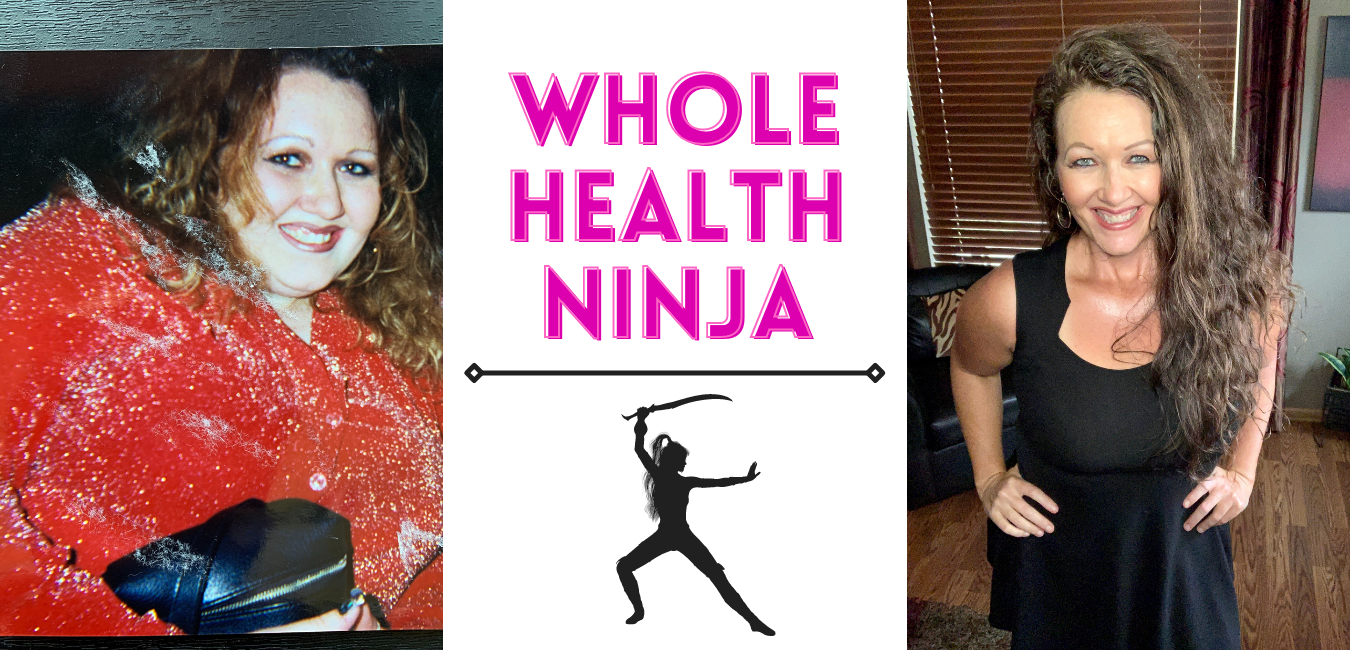IMPORTANT NOTE: The information in this post is for educational purposes only and should NOT be considered medical advice.
Many people have been made to fear the sun due to claims that sun exposure is what causes skin cancer. (I used to be one of those people.) Unfortunately, this is very misguided advice.
The issue isn’t the sun itself. Rather, it’s the interaction of the sun with toxins/free radicals in and on the human body.
SUN EXPOSURE IS CRITICAL FOR OPTIMAL HEALTH

In order to achieve optimal health, it is critical for us to expose ourselves to the sun daily. In fact, multiple studies have shown that sun exposure reduces the risk of all causes of death.
Let’s dig into a few reasons why:
Circadian Rhythm: Sunlight sets the circadian rhythm of our cells, which helps program our sleep/wake cycles for optimal sleep. This also helps to regulate our hormones. Sleep is critical for our bodies to relax, repair and rebuild…and for our brains to detox.
Prompts Important Cellular Messengers: In response to UV rays, our skin generates important cellular messengers including:
-
- Human Growth Hormone (HGH). This hormone helps repair tissue, build muscle mass, boost metabolism and burn fat.
- Peptides. These short chains of amino acids are the building blocks of protein, which help our bodies build collagen and elastin.
- Nitric Oxide. It allows blood, nutrients and oxygen to travel to every part of your body effectively and efficiently.
- Steroids. They are involved in your body’s stress response, immune response, blood electrolyte levels, building and repairing muscle, the regulation of inflammation and behavior.
- Thyroid Hormones. These hormones regulate your body’s metabolic rate which controls heart, muscle and digestive function, brain development and bone maintenance.
- Serotonin. This neurotransmitter plays a key role in multiple bodily functions including mood, sleep, digestion, nausea, wound healing, bone health, blood clotting and sexual desire. Serotonin is known as the “feel good” chemical, as it regulates anxiety and happiness.
- Melatonin. This hormone is produced by your brain to regulate your sleep/wake cycles for optimal sleep.
Vitamin D. The tissues in our bodies have receptors that require sunlight to generate natural vitamin D.
Why is vitamin D so important?
It modulates over 200 genes in the body the oversee many cellular functions including: insulin production, immunity, calcium and bone metabolism, apoptosis (programmed death of unhealthy cells) and suppression of angiogenesis (growth factors for tumors/cancer).
Vitamin D deficiency is correlated with infectious diseases, autoimmune diseases and psychological/psychiatric disorders like depression and schizophrenia. And get this…
The risk of a serious cardiovascular event is 62% higher in people with a vitamin D deficiency. WHOA!
You may be thinking, “What’s the big deal? Can’t I just supplement vitamin D?” Yes, you can. But it’s not the same as your body making its own vitamin D through the natural process of synthesizing the sun’s rays.
PERSONALIZED SUN EXPOSURE
Personally, I aim for 60 minutes of direct sun exposure every day. It’s important to note, however, that I eat a very clean diet rich in carotenoids that help protect my skin. I also consume a lot of chlorophyll-rich foods, which helps to squelch free radicals (the stuff that causes cellular damage) inside my body. Plus, I use toxin-free personal care products and avoid harmful chemicals like chlorine in swimming pool water, so I’m not “cooking” toxins into my skin when it is exposed to the sun.
Depending on your skin type, lifestyle, any medications you take and any health issues you have…it’s important to find the safe sweet spot that works for you. If you have light skin, a good sign you’ve hit your max for the day is when your skin starts to get pink. If you have dark skin, a good indicator is that your skin feels “heated” and very warm to the touch.
REMINDER: The information in this post is for educational purposes only and should NOT be considered medical advice.
SUNSCREEN SHOULD NOT BE YOUR FIRST LINE OF PROTECTION
Yes, sunscreen is a helpful tool for protection from extended sun exposure. But you don’t want to block your skin completely from receiving the benefits detailed above.
When dealing with extended sun exposure, the following practices can be more protective than just wearing sunscreen:
- Eat foods that help your skin jive well with the sun. Foods that are high in carotenoids (beta-carotine, lutein, zeaxanthin and lycopene) like carrots, squash, sweet potatoes, spinach and other dark leafy greens, tomatoes and cruciferous vegetables (broccoli, brussels sprouts, cauliflower, cabbage) do a great job of protecting your skin from sun damage. Foods containing loads of chlorophyll like spinach, broccoli, parsley, collard greens, and spirulina are also very protective.
- Avoid foods that cause inflammation. Processed foods with inflammatory oils (canola, soybean, safflower, sunflower, “vegetable”), isolated sugars and lab-made ingredients cause systemic inflammation throughout your entire body. An inflamed body with inflamed skin does not play well with the sun. This is the recipe for health issues like cancer.
- Wear protective clothing like sun hats, swim shirts, cover-ups, shorts, etc. to keep your skin covered when protection is needed.
- Wear sunglasses to protect your eyes from extended UV radiation that can cause damage.
- Seek shade under a tree, awning or pavilion. Or, create your own shade with a large beach umbrella or cabana like these.
- Plan your outdoor activity around the sun. UV radiation peaks in the middle of the day, so plan to spend the bulk of your time outdoors early in the morning or evening.
- Ditch personal care products with toxic ingredients. Toxic chemicals on your skin can react to the sun’s rays, leading to skin issues like cancer. This is not the sun’s fault.
When you will be basking in the sun for an extended period of time and cannot cover up or find shade, sunscreen is helpful.
But here’s the thing…
Many of the sunscreens found in big box stores are loaded with toxic ingredients that can actually cause more harm to your health than good. In fact, several have been recalled due to containing cancer-causing chemicals. YIKES!
Never fear, I’ve got your back with a solid list of non-toxic sunscreens you can use without worrying about harmful chemical exposure!
MY GO-TO RESOURCE FOR PRODUCT SAFETY: THE ENVIRONMENTAL WORKING GROUP (EWG)
The Environmental Working Group (EWG) is an amazing resource for assessing the safety of your personal care products like sunscreen. They use a 1-10 rating scale that works as follows:
- 0-2 = zero to low health hazard
- 3-6 = medium health hazard
- 7-10 = high health hazard
Thanks to the EWG website, I was able to gather a nice inventory of sunscreens that fall into the “zero to low” hazard category.
NON-TOXIC SUNSCREEN OPTIONS
Below you will find two lists of non-toxic, mineral-based sunscreens:
1) The first list provides health-friendly beach and sports sunscreens for adolescents and adults.
2) The second list provides options formulated specifically for babies and kids. Of course, adults can use them too!
Nontoxic Sunscreen Brands for Adolescents & Adults
- All Good
- Attitude
- Badger
- Bare Republic
- Earth Mama
- Raw Elements
- SunBioLogic
- Suntegrity
- Thinksport
- Two Peas
- Waxhead
Nontoxic Sunscreen Brands for Babies & Kids
- Adorable Baby
- All Good Kids
- Attitude
- Babo Botanicals Baby
- Badger Kids
- Bare Republic Baby
- California Baby
- Earth Mama
- Raw Elements
- Sunbiologic
- Thinkbaby
- TruBaby / TruKid
If you want to assess the safety of a sunscreen brand that’s not on this list, you can use the EWG’s Skin Deep Database.
X SUNSCREEN INGREDIENTS TO AVOID X
Avoid sunscreen with retinol (a derivative of vitamin A).
Eating fruits, vegetables and other natural foods loaded with vitamin A is good for you and helps protect your skin by strengthening your cells. Spreading synthetic derivatives of vitamin A on your skin, however, can actually harm you.
Research shows tumors and lesions develop more quickly on skin that’s coated with retinol-laced creams. This derivative of vitamin A is also called “retinyl palmitate”, and it’s in LOTS of skincare products. Avoid any skin or lip products with retinyl palmitate, retinol or vitamin A on their label.
Avoid oxybenzone, avobenzone, octisalate, octocrylene, homosalate & octinoxate.
These are synthetic ingredients that can disrupt your endocrine system/hormones and create a cancer-causing effect once it penetrates your skin. Look for products with zinc oxide or titanium dioxide instead to protect your skin from harmful UVA radiation.
Don’t use sprays, even those with nontoxic ingredients.
Sunscreen spray fills the air with tiny particles that can be harmful to your lungs when you breathe them in. It’s best to avoid sprays altogether.
Cheers to detoxing your outdoor fun with nontoxic sun protection!
With love and gratitude,
Kandi
DISCLOSURE: The links above are affiliate links, which means I earn a small commission – at no additional cost to you – if you purchase a product through them. (Click here to view my full Disclaimer & Disclosure statement.) This helps me continue providing FREE information to help you live the happy and healthy life you deserve. Thanks for your support!


